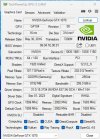Hi Folks,
I am getting VIDEO_DXGKRNL_FATAL_ERROR error when i do load test like Passmark
This is very random, 90% time this error happens with in the first test.
Note: If i switch to KVM64/QEMU 64 this crash does not happen strangely
My Hardware/Software
AMD 5900X
32GB DDR4 RAM @ 3200MHZ (XMP)
1TB SSD
2 X NVIDIA 1080
X570 GIGABYTE AORUS PRO (LATEST BIOS 2023)
Bios:
SR-IOV - ENABLED
4G DECODING - DISABLED
CSM - ENABLED
Host:
ZFS (with Arc Memory limit to 2GB)
5.15.108-1-pve
Proxmox 7.4-16
VM:
Windows 10 PRO (latest updated)
Here is my Config
agent: 1,type=virtio
balloon: 0
bios: ovmf
boot: order=sata0
cores: 8
cpu: host,hidden=1
cpuunits: 10000
efidisk0: local-zfs:vm-100-disk-0,size=1M
hostpci0: 0000:09:00,pcie=1
machine: pc-q35-7.2
memory: 14048
name: ogn1
net0: rtl8139=AA D:33:51:FF:52,bridge=vmbr0
D:33:51:FF:52,bridge=vmbr0
numa: 0
ostype: win10
sata0: local-zfs:vm-100-disk-1,aio=threads,cache=writeback,discard=on,size=100G,snapshot=0,ssd=1
sockets: 1
vga: none
vmgenid: f345cc23-e6ad-486e-8783-c909092232c1
Things i have tried
1. Fresh Windows
2. Safe Boot DDU + STUDIO Driver
3. MSI Interrupt
4. Moved to SATA/RLTK instead of VFIO Drivers
5. kvm=off and -hypervisor in host
Nothing seems to work at all
Please help, need to run things in host mode for the best performance i need.
I am getting VIDEO_DXGKRNL_FATAL_ERROR error when i do load test like Passmark
This is very random, 90% time this error happens with in the first test.
Note: If i switch to KVM64/QEMU 64 this crash does not happen strangely
My Hardware/Software
AMD 5900X
32GB DDR4 RAM @ 3200MHZ (XMP)
1TB SSD
2 X NVIDIA 1080
X570 GIGABYTE AORUS PRO (LATEST BIOS 2023)
Bios:
SR-IOV - ENABLED
4G DECODING - DISABLED
CSM - ENABLED
Host:
ZFS (with Arc Memory limit to 2GB)
5.15.108-1-pve
Proxmox 7.4-16
VM:
Windows 10 PRO (latest updated)
Here is my Config
agent: 1,type=virtio
balloon: 0
bios: ovmf
boot: order=sata0
cores: 8
cpu: host,hidden=1
cpuunits: 10000
efidisk0: local-zfs:vm-100-disk-0,size=1M
hostpci0: 0000:09:00,pcie=1
machine: pc-q35-7.2
memory: 14048
name: ogn1
net0: rtl8139=AA
numa: 0
ostype: win10
sata0: local-zfs:vm-100-disk-1,aio=threads,cache=writeback,discard=on,size=100G,snapshot=0,ssd=1
sockets: 1
vga: none
vmgenid: f345cc23-e6ad-486e-8783-c909092232c1
Things i have tried
1. Fresh Windows
2. Safe Boot DDU + STUDIO Driver
3. MSI Interrupt
4. Moved to SATA/RLTK instead of VFIO Drivers
5. kvm=off and -hypervisor in host
Nothing seems to work at all
Please help, need to run things in host mode for the best performance i need.
Last edited:



